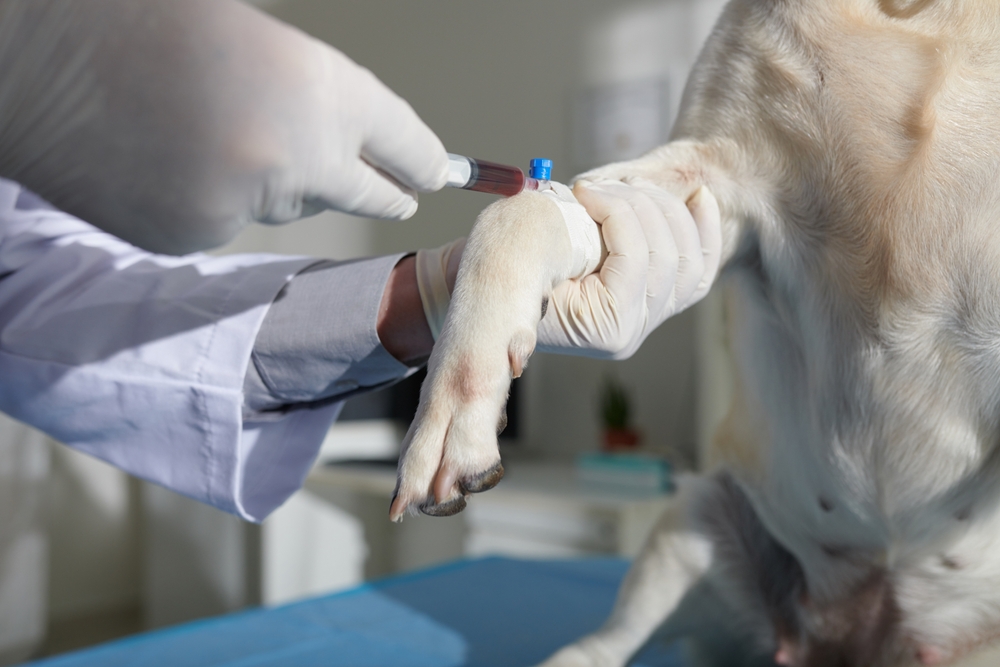
As pet owners, we do everything possible to ensure our furry friends lead healthy and happy lives. While annual check-ups, vaccinations, and a balanced diet are well-known aspects of pet care, one crucial tool often overlooked is regular blood testing. Blood tests are not just for diagnosing illnesses—they're an essential part of preventive care that can uncover hidden health issues before symptoms appear.
What Are Blood Tests for Pets?
Blood tests for pets analyze the components of your pet’s blood, such as red blood cells, white blood cells, platelets, electrolytes, enzymes, and proteins. Common tests include:
• Complete Blood Count (CBC): Evaluates red and white blood cells to detect infections, anemia, and immune system disorders. This test is often the first step in diagnosing a range of conditions, from infections to autoimmune diseases.
• Blood Chemistry Panel: Measures organ function and can detect problems with the liver, kidneys, pancreas, and thyroid. It helps identify underlying health issues that might not be visible during a physical exam, such as diabetes or liver disease.
• Electrolyte Tests: Check for imbalances that could indicate dehydration or metabolic issues. Electrolyte levels are particularly important when assessing conditions like kidney disease or monitoring pets undergoing treatment for illnesses.
• Antigen Tests: These tests identify specific proteins (antigens) related to infections or diseases. For example, heartworm antigen tests are crucial for detecting adult female heartworms in dogs and cats. While primarily used for heartworm detection, antigen tests also assist in diagnosing other conditions, such as parvovirus in dogs or feline leukemia virus (FeLV) in cats.
The Advantages of Routine Blood Testing
Many illnesses, such as kidney disease, liver disease, diabetes, or hormonal imbalances, can be asymptomatic in their early stages. Regular blood tests can detect these issues early, allowing for timely treatment that can improve outcomes.
If your pet has a chronic condition like diabetes or thyroid disease, regular blood work is crucial for monitoring their health. Blood tests help veterinarians track disease progression and adjust medications or treatments as needed.
Blood tests provide a snapshot of your pet’s internal health. Even if your pet appears healthy, a blood test can reveal issues that might not be evident in a physical exam.
Before any surgical procedure, blood tests are also essential to ensure your pet is healthy enough for anesthesia. They help identify any underlying risks and guide the veterinarian in choosing the safest options for your pet.
Regular blood tests help establish your pet's normal health baselines. If any changes occur over time, veterinarians can compare current results to these baselines, making it easier to pinpoint potential health issues.
Heartworm Testing: A Critical Preventive Measure
Heartworm disease is a serious and potentially fatal condition caused by parasitic worms that live in the heart, lungs, and blood vessels of infected pets. It is transmitted through mosquito bites, making prevention and early detection crucial, especially in areas with high mosquito populations like Texas.
Regular heartworm testing is essential, even if your pet is on a preventive medication. Testing ensures that your pet is heartworm-free before starting or continuing preventive treatments. This step is vital because administering preventatives to a pet that is already heartworm-positive can lead to severe complications.
When heartworm-positive pets continue to use preventatives, the medication can kill immature heartworms (microfilariae) circulating in the bloodstream too quickly, causing a potentially fatal reaction known as a microfilarial embolism. Additionally, preventatives do not eliminate adult heartworms, leaving the infection untreated and allowing it to worsen. Proper testing and a veterinarian-supervised treatment plan are the safest and most effective ways to address heartworm disease.
When to Schedule Your Pet’s Blood Tests
The frequency of blood tests depends on factors like your pet’s age, breed, and health status:
• Young Pets: Typically need blood tests once a year during their annual wellness check-up.
• Senior Pets: Pets over the age of 7 may require blood tests every 6 months to monitor for age-related conditions.
• Pets with Chronic Conditions: May need more frequent testing as recommended by your veterinarian.
What to Expect During a Blood Test
Blood tests for pets are quick, minimally invasive, and relatively stress-free. Your veterinarian will collect a small blood sample, which is then analyzed a laboratory. Results are usually available within a few days, giving you and your vet the information needed to address any concerns.
Schedule Your Pet’s Blood Test at True Animal Vet Today
Regular blood tests are an essential part of proactive pet care, offering invaluable insights into your pet's health. From early detection of illnesses to ongoing monitoring of chronic conditions, these tests help ensure your furry companion stays healthy and happy for years to come. By making blood tests a routine part of your pet’s wellness plan, you’re taking an important step in safeguarding their health and well-being.
At True Animal Vet, we’re here to provide comprehensive care for your pet. Don’t wait until symptoms appear, prioritize your pet’s health with regular blood testing. Visit our clinic in The Woodlands, Texas (77381), call (281) 867-5968 or text (281) 916-3282 to schedule an appointment today.










